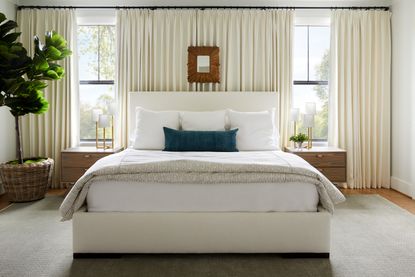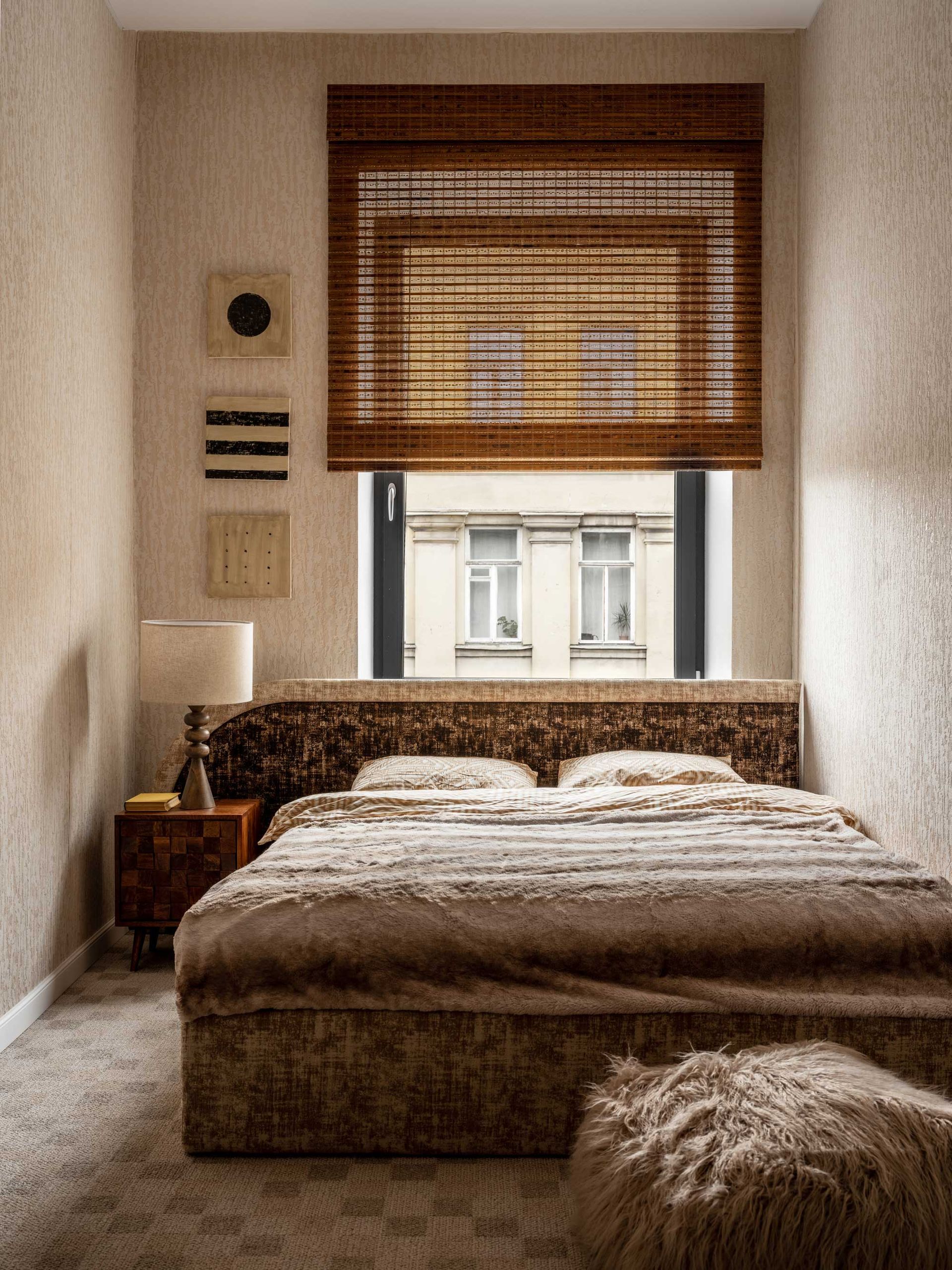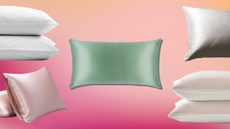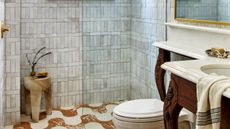What is the best humidity for sleep? Experts unanimously agree this is the optimum level to aim for
The humidity levels in your bedroom can have a huge impact on your sleep, so it's vital you get it right


Typically it's during summer that we're most concerned about our sleeping environment. Although sticky sheets and hot pillows are a concern of the past (for now, at least), our bedroom conditions are still important, and the humidity level could be the reason behind your restless nights this time of year.
A surprising number of people pay little attention to humidity levels in their homes in the colder months, but experts say this can be a rooky mistake. Addressing the humidity levels can seriously improve the air quality in your space, turning your modern bedroom into the relaxing sleep sanctuary you've always longed for. And, as turns out, there's an optimum percentage for the best night's rest. We spoke to experts to find out what it is and the measures you should take to gain control of the moisture levels in your home.
How does humidity affect sleep?

You might feel like you sleep better during winter, but you certainly won't be if your humidity is too high (or low). The throws and heavy duvets all contribute to a cozy sleeping environment, unlike the conditions in summer where we struggled to sleep under even the thinnest of sheets. However, humidity can be a real sleep disrupter and it can be a common problem during winter.
'High humidity levels reduce the density of oxygen in the air, making it harder to breathe comfortably,' says Carlie Gasia, a Certified Sleep Science Coach at Sleepopolis. 'This can lead to more difficulty breathing during sleep and worsen sleep quality.'
'Humidity can also decrease slow wave sleep (SWS) and rapid eye movement (REM) sleep, increasing night awakenings, and reducing sleep efficiency, while low humidity or dry air can irritate airways, eyes, nose, and throat,' adds Carlie. If you want to sleep better, achieving the optimum humidity is key.
What is the best humidity level for sleep?

Now you know the effects of extreme humidity levels, you'll be eager to know the optimum level, and the experts we spoke to are all united on the precise range that's the best for sleep.
'To sleep well, it's best to keep your room's humidity between 40% and 60%,' says Richard Prasad, CEO of Sleep365. This might seem like an arbitrary number, but it creates the perfect environment for the perfect sleep. 'This humidity keeps the air from being too dry or damp,' Richard adds. 'Dry air can make you uncomfortable and mess up your sleep by irritating your throat and nose, but if it’s too wet, things like mold and dust mites might grow, which is also bad for sleeping soundly.' Getting the perfect humidity balance might be one of the simplest changes to make in the bedroom while bringing about one of the greatest effects.
How do you control the humidity level in your bedroom?

Luckily, to regain control over the humidity level in your sleeping space, there are a few simple changes you can make. Before you dive into the humidity solutions, however, you'll need to check what your levels are actually like in order to determine the best course of action.
'Integrating a hygrometer into your bedroom setup allows you to monitor the humidity levels accurately,' says HVAC technician, Josh Mitchell. 'Place it away from direct sources of moisture or heat for the most precise readings.' Before you dive into buying an expensive humidifier - or dehumidifier - though, you may want to try out some alternative methods. 'I always advise trying non-appliance methods of humidity management first when possible,' says Evan Scoboria from Prime Home Humidity. 'If the reading is below 30%, try introducing a few indoor plants and if the reading is high, look for ways to increase airflow from parts of the home with conditioned air.'
Some of the best houseplants will help control the moisture levels in the air, but if this proves inadequate, look to more heavy-duty solutions such as an ultrasonic humidifier or electric dehumidifier. When purchasing one of these machines there are a few things to consider. 'Look for devices with automatic humidity sensors, easy maintenance, and adequate capacity for your room size,' advises Josh. You can even get air conditioners with built-in dehumidifiers to help regulate the environment.
Every home is unique, therefore the best solution will be specific to your setup. Factors like local climate, home size, and personal health conditions can have an impact on the best choice for you, so make sure you do your research before you invest!
Best dehumidifiers

Price: $89.99
Capacity: 95 oz

Price: $29.99
Features: 7 LED Colors

Price: $165.99
Capacity: 64 oz
Be The First To Know
The Livingetc newsletter is your shortcut to the now and the next in home design. Subscribe today to receive a stunning free 200-page book of the best homes from around the world.

Amy recently completed an MA in Magazine Journalism at City, University of London, with experience writing for Women’s lifestyle publications across arts, culture, and beauty. She has a particular love for the minimalist aesthetic mixed with mid-century furniture, especially combining unique vintage finds with more modern pieces. Her previous work in luxury jewellery has given her a keen eye for beautiful things and clever design, that plays into her love of interiors. As a result, Amy will often be heard justifying homeware purchases as 'an investment', wise words to live by.
-
 What are the Most Comfortable Pillowcases? From Temperature Regulating to the Best for Your Skin
What are the Most Comfortable Pillowcases? From Temperature Regulating to the Best for Your SkinWhen you're looking for comfort in your pillowcases, material matters. These are the best you can buy
By Faaizah Shah Published
-
 5 Simple, but Genius Bathroom Layout Tricks That Will Make Your Space Work so Much Harder
5 Simple, but Genius Bathroom Layout Tricks That Will Make Your Space Work so Much HarderSmall switches to how you lay out your bathroom that help make the most of a small space
By Luke Arthur Wells Published

